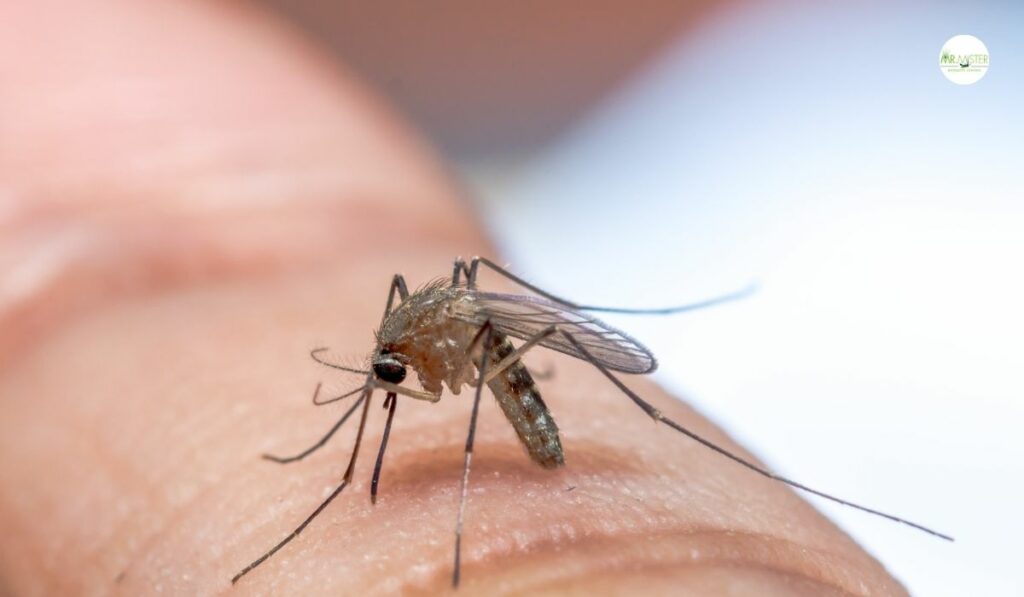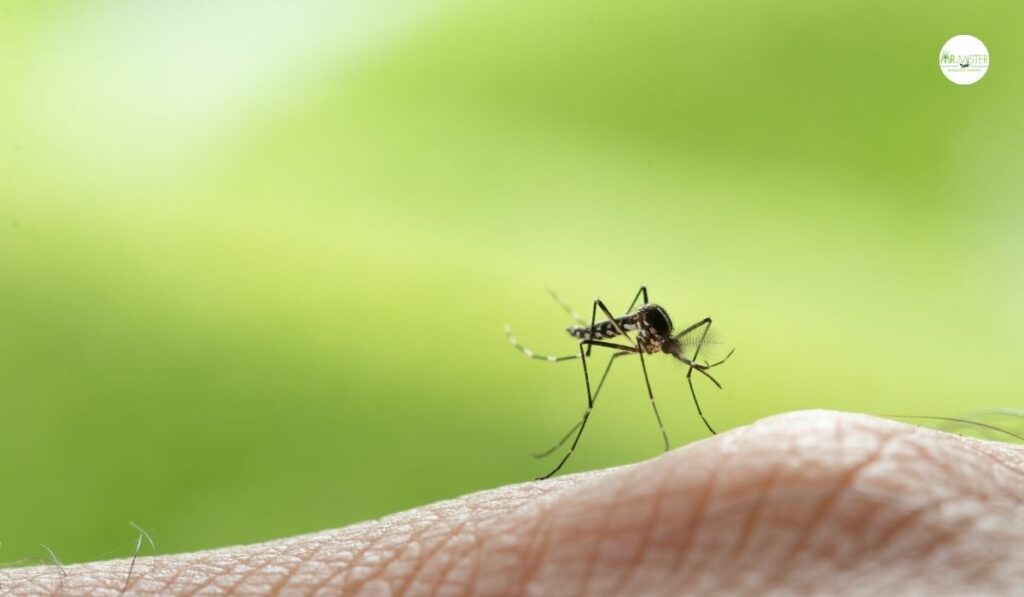How can community efforts contribute to eco-friendly mosquito control practices?
Serving Atlanta, Georgia and Surrounding Areas
Mosquitoes are notorious for their ability to spread diseases like malaria, dengue fever, Zika virus, and West Nile virus, posing significant health risks to communities worldwide.
Traditional mosquito control methods often rely on chemical pesticides, which can have harmful effects on human health and the environment.
However, there is a growing recognition of the importance of eco-friendly mosquito control practices that minimize the use of chemicals and focus on sustainable, community-based solutions.
In this article, we will explore how community efforts can play a crucial role in promoting eco-friendly mosquito control practices.
Education and Awareness:
One of the most effective ways communities can contribute to eco-friendly mosquito control is through education and awareness campaigns.
By educating residents about the importance of mosquito control and the environmental impacts of traditional methods, communities can foster a greater understanding of the need for sustainable alternatives.
This can involve workshops, seminars, and outreach programs aimed at both adults and children, emphasizing the role that each individual can play in mosquito control efforts.
Source Reduction:
Source reduction is a critical component of eco-friendly mosquito control and involves eliminating or modifying mosquito breeding sites.
Communities can collaborate to identify and address potential breeding grounds such as stagnant water sources, discarded tires, and clogged gutters.
By promoting practices like proper waste disposal, rainwater harvesting, and maintaining clean water bodies, communities can significantly reduce mosquito populations without relying on chemical pesticides.
Biological Control:
Biological control methods utilize natural predators or pathogens to target mosquito larvae or adults, thereby sustainably reducing mosquito populations.
Communities can implement biological control measures by introducing mosquito-eating fish species like Gambusia affinis (mosquito fish) into water bodies or by encouraging the growth of mosquito larvae-eating organisms like dragonfly nymphs and predatory aquatic insects.
Additionally, communities can support research and initiatives focused on developing biopesticides derived from naturally occurring bacteria, fungi, or plant extracts that specifically target mosquitoes while minimizing harm to non-target organisms.
Integrated Pest Management (IPM):
Integrated Pest Management (IPM) is an approach that combines multiple strategies to manage pests while minimizing environmental impact effectively.
Communities can adopt IPM principles to design comprehensive mosquito control programs tailored to their specific needs and resources.
This may include a combination of surveillance and monitoring techniques, habitat modification, biological control, and targeted pesticide applications as a last resort.
By integrating eco-friendly practices into existing mosquito control efforts, communities can achieve long-term, sustainable results.
Community Engagement and Participation:
Active community engagement and participation are essential for the success of eco-friendly mosquito control initiatives.
Communities can establish volunteer-based programs where residents contribute to mosquito surveillance, habitat monitoring, and source reduction efforts.
By fostering a sense of ownership and responsibility among community members, these programs can enhance the effectiveness and sustainability of mosquito control efforts while promoting a sense of unity and shared purpose.
Advocacy and Policy Support:
Communities can also advocate for policies and regulations that promote eco-friendly mosquito control practices at the local, national, and international levels.
This may involve lobbying government authorities to allocate resources for research and implementation of sustainable mosquito control methods, as well as supporting legislation that restricts the use of harmful pesticides and promotes alternatives.
By amplifying their voices and mobilizing collective action, communities can influence decision-makers to prioritize eco-friendly approaches to mosquito control.
Public Health Impact:
In addition to their nuisance value, mosquitoes are vectors for several deadly diseases, particularly in tropical and subtropical regions.
Malaria alone claims hundreds of thousands of lives annually, mainly affecting children under five and pregnant women.
Dengue fever, Zika virus, and chikungunya are also significant public health concerns, with outbreaks occurring worldwide.
By implementing eco-friendly mosquito control practices, communities can reduce the risk of disease transmission, leading to healthier populations and decreased healthcare costs.
Environmental Conservation:
Chemical pesticides used in conventional mosquito control methods can have detrimental effects on non-target organisms, including beneficial insects, birds, and aquatic life.
They can also contaminate soil and water resources, disrupting delicate ecosystems and threatening biodiversity.
In contrast, eco-friendly mosquito control practices prioritize the preservation of ecological balance by minimizing the use of harmful chemicals and promoting the health of natural habitats.
By safeguarding ecosystems, communities can ensure the long-term viability of essential ecosystem services like pollination, nutrient cycling, and water purification.
Climate Resilience:
Climate change is exacerbating mosquito-borne disease transmission by altering temperature and precipitation patterns, expanding the geographic range of mosquitoes, and prolonging the mosquito breeding season.
Eco-friendly mosquito control practices can contribute to climate resilience by reducing greenhouse gas emissions associated with pesticide production and application.
Moreover, initiatives like habitat restoration and sustainable water management can enhance ecosystem resilience to climate impacts while mitigating the spread of mosquito-borne diseases in vulnerable communities.
Economic Benefits:
Investing in eco-friendly mosquito control practices can yield significant economic benefits for communities in the long run.
By reducing reliance on costly chemical pesticides and minimizing the need for medical treatment of mosquito-borne diseases, communities can save money and allocate resources more effectively.
Additionally, eco-friendly approaches can create opportunities for local businesses and entrepreneurs, such as the production and distribution of biological control agents or the development of ecotourism initiatives centered around mosquito habitat restoration and wildlife conservation.
Global Collaboration:
Mosquito-borne diseases know no borders and effective mosquito control requires international cooperation and collaboration.
Communities can leverage global networks and partnerships to share knowledge, best practices, and resources for eco-friendly mosquito control.
Initiatives like the World Health Organization’s Global Vector Control Response and the Sustainable Development Goals provide frameworks for coordinated action on mosquito-borne diseases and environmental sustainability.
By working together across national and regional boundaries, communities can amplify their impact and achieve tremendous success in combating mosquito-borne diseases while promoting eco-friendly practices worldwide.
Conclusion:
As communities around the world grapple with the dual challenges of mosquito-borne diseases and environmental degradation, the adoption of eco-friendly mosquito control practices is more urgent than ever.
By addressing public health concerns, conserving natural resources, building climate resilience, and unlocking economic opportunities, these practices offer a holistic approach to mosquito control that benefits both people and the planet.
Through collective action and collaboration, communities can pave the way for a healthier, more sustainable future where mosquito-borne diseases are no longer a threat and ecosystems thrive in harmony with human activities.
To learn more about eco-friendly mosquito control solutions and how you can contribute to community efforts, visit us at Mr. Mister Mosquito Control.
FAQs
How can community efforts contribute to eco-friendly mosquito control practices?
Community efforts play a vital role in promoting eco-friendly mosquito control practices through various avenues such as education and awareness campaigns, source reduction, biological control, integrated pest management (IPM), community engagement, advocacy for policy support, and global collaboration.
What is the significance of education and awareness in eco-friendly mosquito control?
Education and awareness campaigns are crucial for fostering a greater understanding of the importance of mosquito control and the environmental impacts of traditional methods. By educating residents about sustainable alternatives, communities can promote responsible mosquito control practices.
What is source reduction, and how can communities implement it?
Source reduction involves eliminating or modifying mosquito breeding sites. Communities can collaborate to identify and address potential breeding grounds like stagnant water sources, discarded tires, and clogged gutters. Promoting proper waste disposal and maintaining clean water bodies are effective strategies for reducing mosquito populations.
How does biological control contribute to eco-friendly mosquito control?
Biological control methods utilize natural predators or pathogens to target mosquito larvae or adults, reducing mosquito populations sustainably. Communities can introduce mosquito-eating fish species, encourage the growth of mosquito larvae-eating organisms, and support research on biopesticides derived from naturally occurring sources.
What is Integrated Pest Management (IPM), and how can communities adopt it?
IPM combines multiple strategies to manage pests effectively while minimizing environmental impact. Communities can design comprehensive mosquito control programs using surveillance techniques, habitat modification, biological control, and targeted pesticide applications as a last resort.
Why is community engagement critical in eco-friendly mosquito control initiatives?
Active community engagement enhances the effectiveness and sustainability of mosquito control efforts by fostering a sense of ownership and responsibility among residents. Volunteer-based programs for mosquito surveillance, habitat monitoring, and source reduction empower communities to take proactive measures.
How can communities advocate for policy support in eco-friendly mosquito control?
Communities can advocate for policies and regulations that promote sustainable mosquito control practices at various levels of government. This includes lobbying for resources for research and implementation, as well as supporting legislation that restricts the use of harmful pesticides and promotes eco-friendly alternatives.
What are the public health benefits of eco-friendly mosquito control practices?
Eco-friendly mosquito control practices reduce the risk of disease transmission, leading to healthier populations and decreased healthcare costs. By minimizing the use of chemical pesticides, communities can mitigate the spread of mosquito-borne diseases like malaria, dengue fever, Zika virus, and chikungunya.
How do eco-friendly mosquito control practices contribute to environmental conservation?
Eco-friendly practices prioritize the preservation of ecological balance by minimizing the use of harmful chemicals and promoting the health of natural habitats. This helps safeguard ecosystems, preserve biodiversity, and maintain essential ecosystem services like pollination and water purification.
What role do eco-friendly mosquito control practices play in climate resilience?
Eco-friendly mosquito control practices contribute to climate resilience by reducing greenhouse gas emissions associated with pesticide production and application. Additionally, habitat restoration and sustainable water management initiatives enhance ecosystem resilience to climate impacts while mitigating the spread of mosquito-borne diseases.
* Schedule a Free Mosquito Control Consultation – 404-941-0720 *
* Guaranteed Results * 100% Biodegradable * Locally Owned




